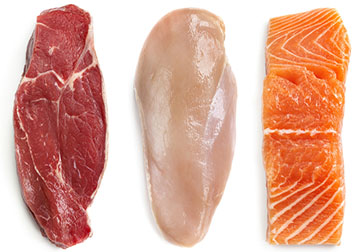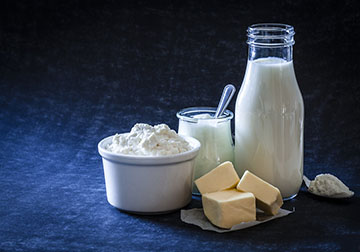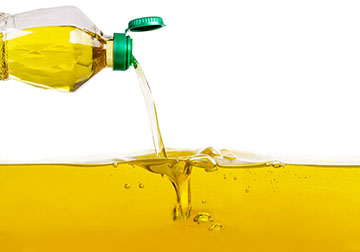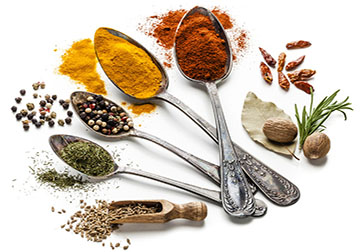Food adulteration refers to the act of intentional, fraudulent addition of extraneous, improper or cheaper ingredients to food products. It also refers to the dilution or removal of valuable ingredients or spurious geographic or botanical origin of food products in order to increase profits. Besides, incidental contamination due to ignorance or lack of proper food processing facilities can also lead to food adulteration. Adulterants not only decrease the quality of food products, but can also be a threat to human health, which may cause stomach disorders, vision problem, liver problem, skin diseases, and so on. Therefore, authenticity testing of food is essential for both adhering to regulatory requirements and safeguarding public health.
Lifeasible is a leader in food authenticity testing. We provide comprehensive techniques to help detect adulterated and contaminated food before it hits the shelves.
Physical methods
Microscopic and macroscopic visual structural analysis, as well as physical parameters (e.g., morphology, texture, solubility, bulk density, etc.) analysis, are physical methods commonly used for the detection of food adulteration.
Chemical and biochemical techniques
Various chemical and biochemical methods, which can be categorized as chromatography based, spectroscopy based, immunology based, and so on, have been designed for the detection of adulterants.
- Chromatography based methods: The sensitive and fast methods such as LC-MS/MS are widely used as approaches to detect and quantify food adulterants, with the capacity of high through-put at competitive prices.
- Spectroscopy based methods: A variety of spectroscopy techniques can be used for food authenticity testing, which include, but not limited to:
- Fourier transform infrared (FT-IR) spectroscopy: The principle of FT–IR spectroscopy is that when a sample is interrogated with an infrared beam (usually in the mid-infrared from 4000-400 cm-1 or near-infrared 14 000-4000 cm-1), functional groups within the sample will absorb this radiation and vibrate in certain ways (such as stretching or bending vibrations) and these vibrations/absorptions can be correlated directly with (bio)chemical species. Every chemical or biochemical substance will have its own unique infrared profile. FT-IR spectroscopy allows extremely rapid, high throughput, and non-destructive analysis of a wide range of sample types.
- Near infrared (NIR) spectroscopy: NIR spectroscopy has a very high signal-to-noise ratio and can measure multiple components in a food sample simultaneously. In addition, it has remote sampling capability allowing for the collection of real-time information in a process stream, as well as detection of samples whose packaging materials that are transparent to NIR light.
- Raman spectroscopy: Raman spectroscopy is a versatile, non-destructive analytical technique which can provide a unique spectral fingerprint of many analytes. The technique can analyze a wide range of analytes ranging from macro-food components (lipids, proteins, and carbohydrates) to the minor components (dyes, pigments, and flavors). Moreover, Raman spectroscopy is able to detect analytes in solutions with minimal interference with water.
- Nuclear magnetic resonance (NMR) spectroscopy: NMR spectroscopy is a fingerprinting technique which can provide valuable structural information and determine the physical and chemical properties of atoms within a molecule. NMR spectroscopy can be used across a wide range of sample types, including solids and solutions, as well as complex mixtures.
- Mass spectrometry (MS): MS identifies analytes by a series processes including sample introduction, ion formation in the ionization source, ion separation based on their mass-to-charge (m/z) ratio in a mass analyzer, and finally ion detection.
- Multispectral imaging (MSI): The MSI technique is an innovative and non-invasive technique, which combines both imaging and spectral technologies. It typically uses multiple wavelengths from the UV through to the near infra-red spectrum, permitting fast and accurate determination of surface color, texture, and potential chemical composition.
- Isotope analysis techniques: Stable isotope analyses are among the most powerful techniques to verify the authenticity of botanical, synthetic food products, and even geographical origin of a product. These methods are based on the principle that the bioelements of C, H, O, N, of organic matter exist in their naturally occurring isotopic form - 13C/12C, 2H/1H, 18O/16O, 15N/14N, and the distribution of the isotope is influenced by physical, chemical and biochemical factors. Lifeasible provides both stable isotope ratio analysis (SIRA) and site-specific natural isotope fractionation-nuclear magnetic resonance (SNIF-NMR).
- Immunology based methods: The immunology techniques such as enzyme-linked immunosorbent assay (ELISA) are based on reactions of antibodies with the target proteins.
DNA based Methods /Molecular Techniques
The DNA based molecular tools are ideal for detection of adulterants which are biological substances. Three major methods are adopted for detection of adulterants in food products: PCR based, sequencing based, and hybridization based methods.
The increasing presence of adulterants in food products has highlighted the need for accurate testing strategies. Precise detection of food adulterants is essential to protect consumer health, avoid costly product recalls, and uphold brand confidence. Lifeasible has extensive experience and expertise in food authenticity testing for a variety of food products, including meat, honey, milk, edible oil, wine, fruit juice, coffee, tea, herb and spice, grain, and so on. We are able to offer tailored and accredited methods to meet your needs. Our food experts offer you one-stop services from sampling, testing to data interpreting. For more information about our food authenticity testing, please feel free to contact us.
Our products/services are For Research Use Only. Not For Clinical Use!









